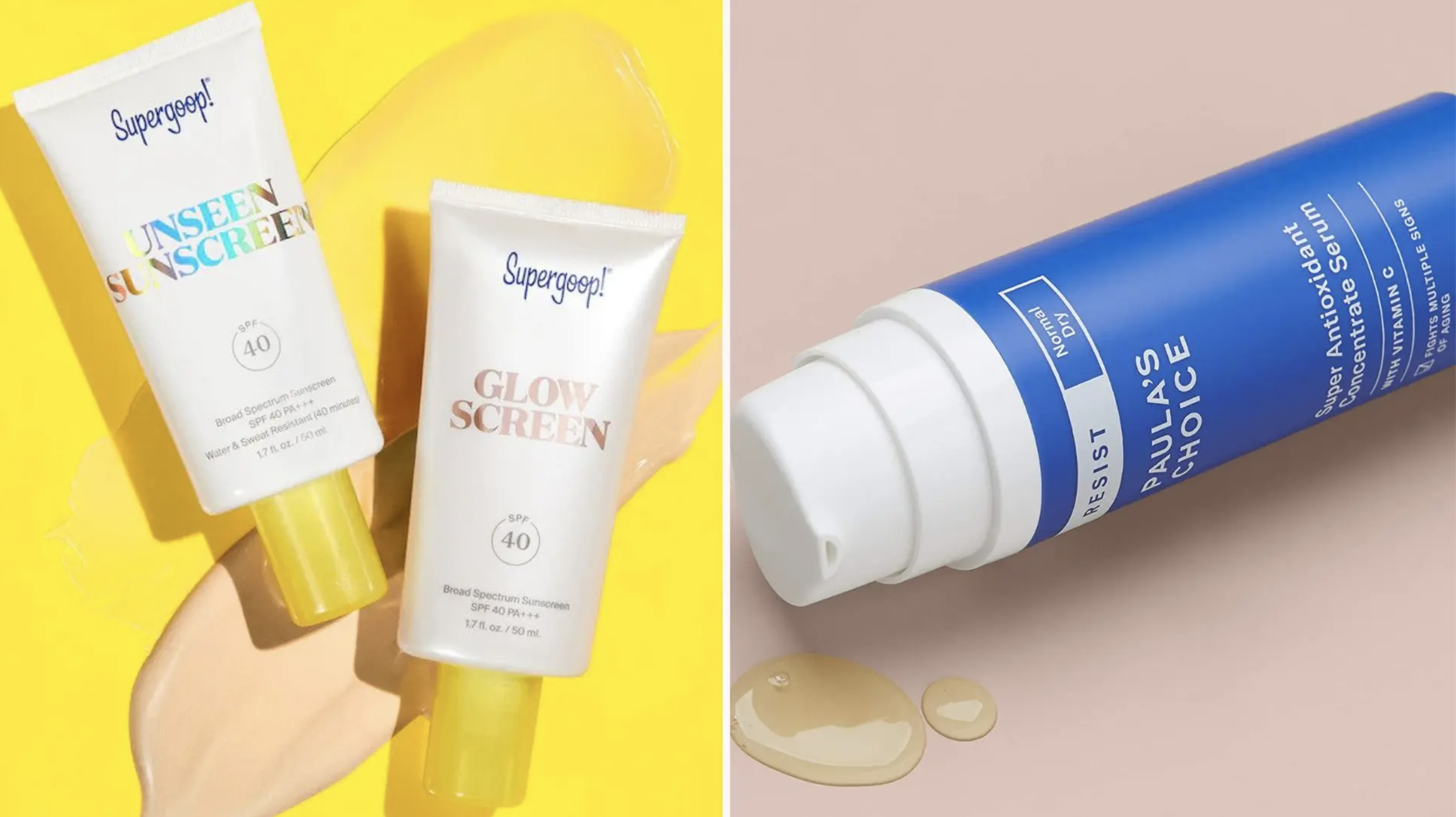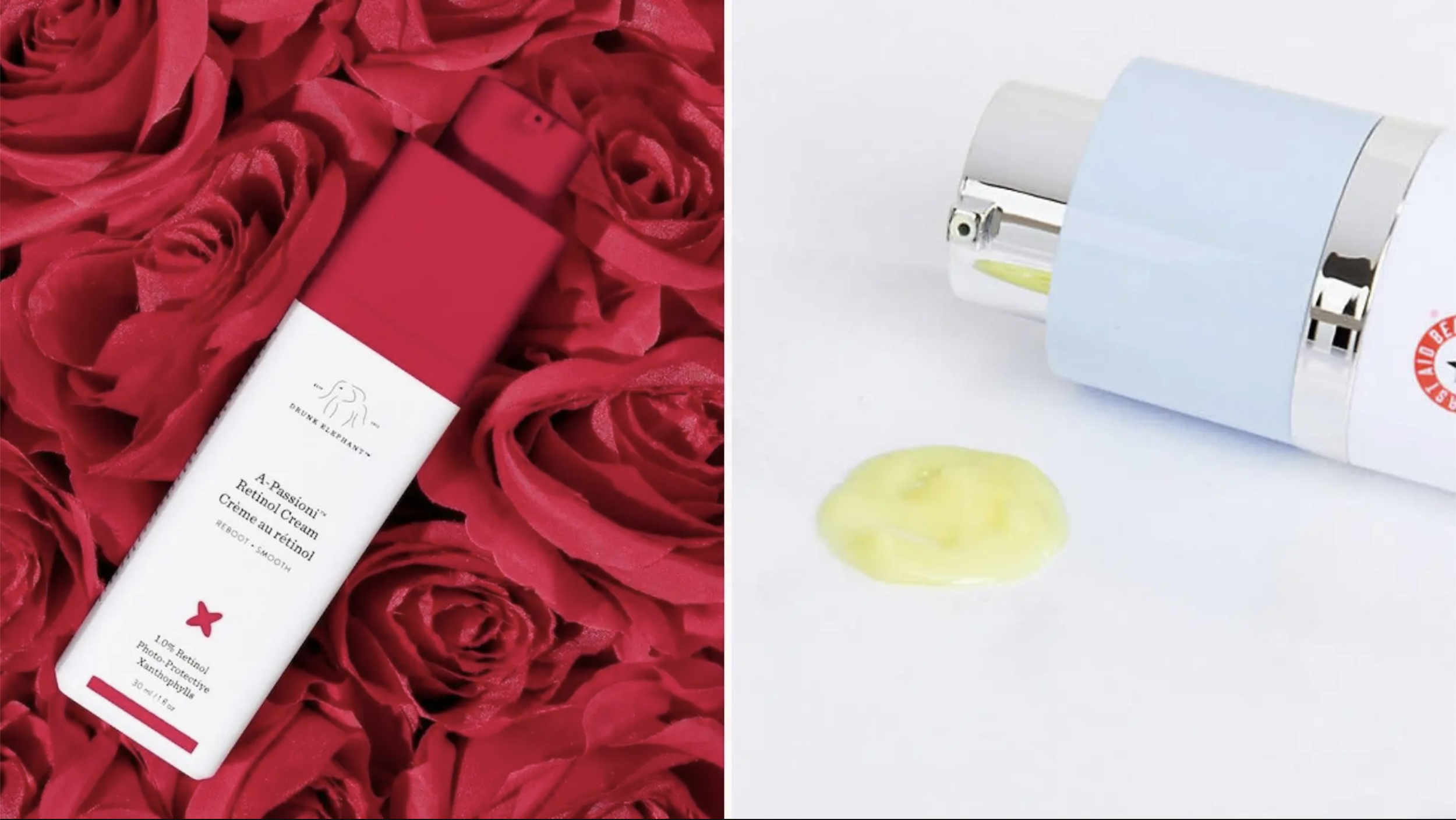To tackle wrinkles at the source, it’s important to understand exactly why they form. According to Camp, there are a number of potential culprits behind the formation of those pesky lines.
“Wrinkles form as a result of a number of skin changes,” said Camp. “These include a decrease in the amount of structural proteins like collagen and elastin, reduced oil production, shrinking fat pads, and bone resorption.”
Is it just age that causes those things to happen, or are there environmental factors too? Both Camp and Plunkett emphasize the wide range of root causes.
“Wrinkles are a natural part of aging, but there are some habits that can bring on early aging,” said Plunkett. “Things like intense sun exposure, smoking, sleep positions, poor nutrition, lack of exercise, and not having a consistent skin regimen.”
Camp agreed, going into a little more detail about the science behind wrinkles.
“With age, our bodies produce less collagen and elastin, which are structural proteins in the skin that provide rigidity, firmness, and elasticity,” he explained. “Oil glands also reduce their output, which makes skin drier and reduces its ability to retain moisture. Pockets of fat in the skin of our face shrink and descend, accentuating lines and folds.”
As a result, Camp said, habits that contribute to the breakdown of those elements of the skin can increase the risk of wrinkles—while good habits can help the skin stay fresh and repair itself.
HOW CAN YOU AVOID WRINKLES?

You can’t avoid wrinkles forever since they’re a natural part of the aging process. However, you can limit or delay their formation with the right combination of lifestyle habits and skincare products.
“Sun exposure contributes to the breakdown of collagen and elastin. Ultraviolet radiation exposure also contributes to the formation of sunspots and increases the risk of skin cancer,” said Camp. “Diet can also influence skin health, as a well-balanced diet can help the skin repair itself from damage and inflammation caused by the formation of free oxygen radicals.”
According to Plunkett, a few simple steps can set you on the road to soft, supple, and wrinkle-free skin.
“Wearing sunscreen every day is the first step,” she said. “Use an antioxidant, like Vitamin C, to protect your skin from pollution & free radicals. Sleep on your back, so your face isn’t compressed by your pillow. Maintaining a healthy diet and getting regular exercise always helps.”
Camp agreed with these recommendations, suggesting a combination of habits and products to help reduce the likelihood of forming wrinkles:
-
“Limit repetitive movements of facial muscles that, over time, can etch lines into the skin.”
-
“Use a daily moisturizer with SPF 30 minimum, and when outside for extended periods, use sun protective clothing like wide-brimmed hats, sunglasses, sun-protective fabrics, and seek shade.”
-
“Maintaining a healthy lifestyle with adequate sleep, a well-balanced diet, and regular exercise will contribute to the health of your body, mind, and skin.”
-
“Do not smoke or use e-cigarettes, drink in excess, or use tanning beds, as these are all associated with accelerated skin aging.”
-
“Develop and maintain a simple skin care regimen that integrates ingredients known to be helpful for preventing and treating wrinkles, like retinols or retinoids, antioxidants like Vitamin C, and hyaluronic acid.”
HOW CAN REVERSE WRINKLES?

Can you actually reverse wrinkles? Not exactly, say the experts—but you can take steps to minimize them. Prevention is the best “cure,” as well as products that help reduce the appearance of fine lines and wrinkles.
According to Camp, starting with sunscreen should be at the top of your anti-wrinkle list.
“Daily moisturizers with sunscreen are an important step in your skin care routine,” he said. “The American Academy of Dermatology recommends a broad spectrum sunscreen of minimum SPF 30.”
Camp also recommended a few other types of products, largely with the same ingredients that help to prevent wrinkles in the first place.
“Retinols and retinoids help limit the formation of fine lines and wrinkles by increasing collagen production,” Camp said. “Vitamin C and other antioxidants neutralize free oxygen radicals, which are unstable oxygen molecules that damage cellular structures like DNA, lipids, and protein. Hyaluronic acid helps the skin retain moisture by attracting water molecules to the skin. In doing so hyaluronic acid helps the skin remain plump and youthful.”
Retinols and retinoids can take a little time to get used to, so be sure to take your time and work up to more potent products slowly in order to give your skin time to adapt. It’s best to start with a lower concentration, like the First Aid Beauty FAB Skin Lab Serum, which has just a 0.25% concentration of retinol.
Plunkett also recommended retinoids as part of any anti-aging regimen, for their role in encouraging cell turnover.
“On top of all these other methods, regular skin treatments like facials, lasers, and neurotoxins can help keep the wrinkles at bay,” she said. Consult a dermatologist or aesthetician to find out what will and won’t work for your skin.
Reducing wrinkles is one of the most common skincare priorities. With these tips and products, plus supportive lifestyle choices like diet and exercise, you can keep your skin looking smooth and glowing for years to come.
This article was originally published on lifesavvy.com.

